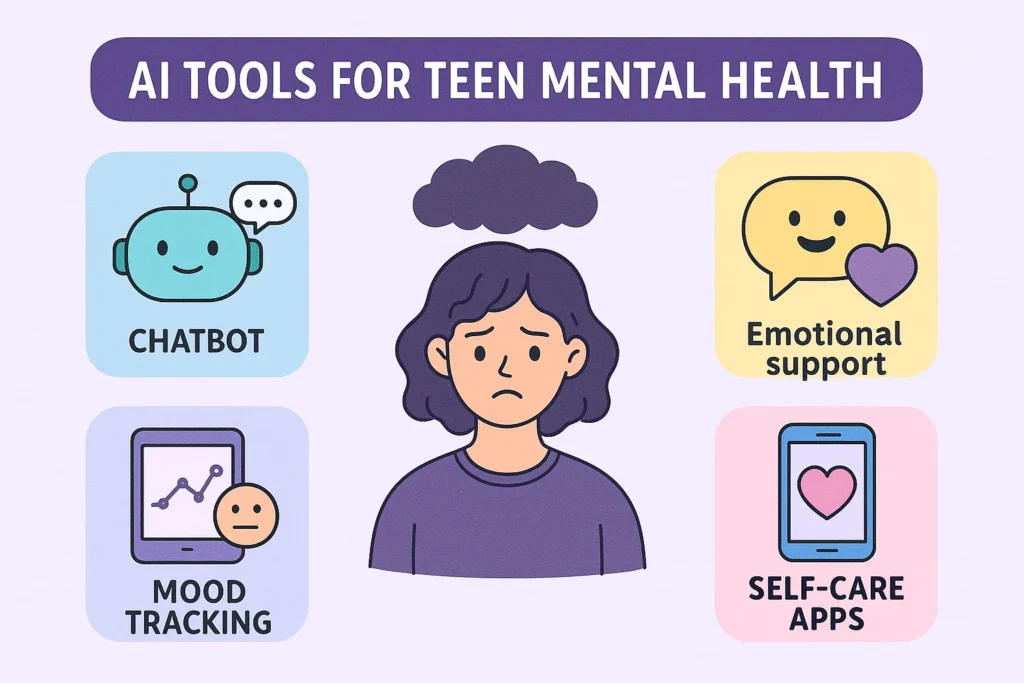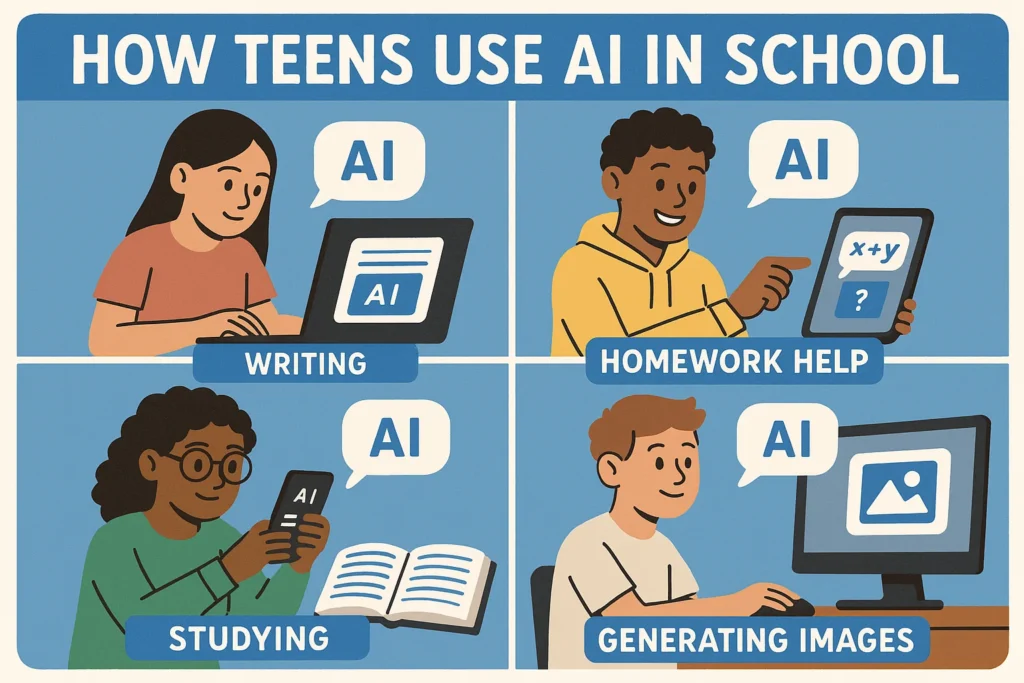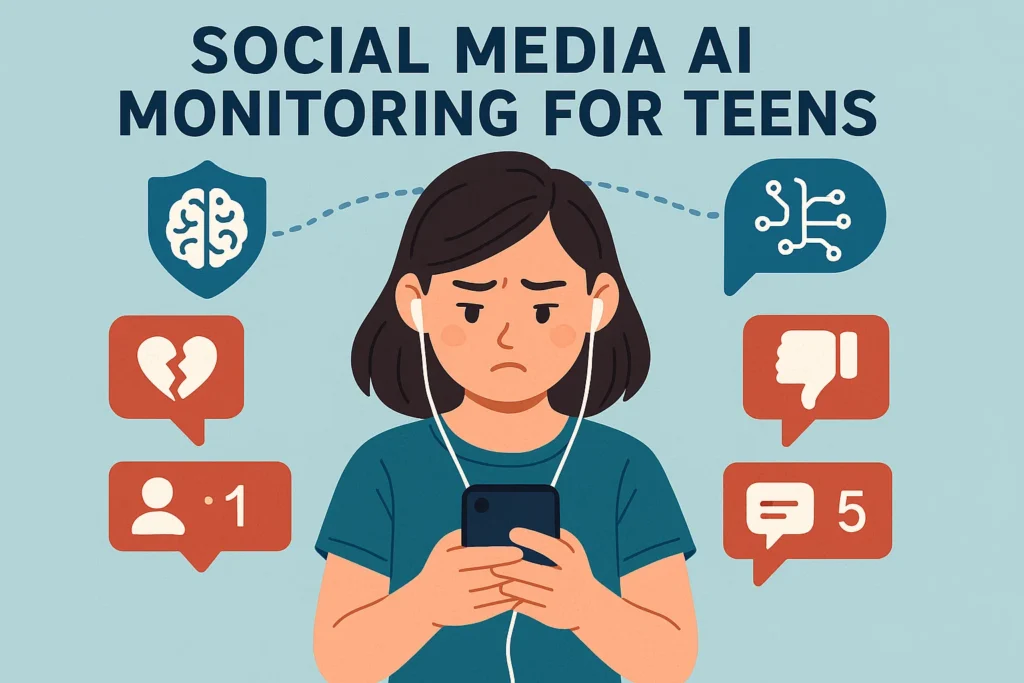🌟 Introduction
AI Tools for Teen Mental Health: In a world where mental health challenges among teens are rising, AI is stepping in as a supportive ally. From mood-tracking apps to AI-powered chat companions, technology is offering new ways to understand and manage emotions.
At AiBlogQuest.com, we explore how innovation and empathy intersect — showing how AI tools for teen mental health can help today’s youth build emotional resilience and self-awareness.
💬 Why Teen Mental Health Needs AI Support
Teens today face academic pressure, social media influence, and emotional ups and downs. Many feel more comfortable opening up to AI-powered chatbots or apps because they offer nonjudgmental, 24/7 support. AI can help track emotional patterns, detect warning signs, and even suggest coping strategies.
🧠 7 Ways AI Tools Support Teen Mental Health
1. Mood Tracking and Journaling Apps
AI-driven journaling tools analyze emotions from text entries and provide personalized insights, helping teens understand their daily mood swings.
2. Chatbots for Emotional Support
Virtual companions like AI chatbots offer confidential conversations that encourage self-expression and reduce loneliness.
3. Therapy Assistance and Scheduling
AI helps match teens with therapists or recommend suitable wellness programs, making mental health care more accessible.
4. Mindfulness and Meditation Guides
AI-based apps provide guided breathing, meditation, and focus exercises tailored to an individual’s stress levels or mood.
5. Social Media Emotion Detection
AI tools can monitor online activity and detect negative patterns such as cyberbullying or emotional distress in posts — alerting users to seek help.
6. Sleep and Wellness Trackers
AI monitors sleep quality and suggests healthy routines to improve mental clarity, rest, and focus.
7. Crisis Detection and Early Intervention
Some advanced systems use AI to identify warning signs of anxiety, depression, or self-harm, alerting caregivers or professionals when needed.
⚖️ The Ethics of AI in Mental Health
While AI can provide valuable insights, it should never replace professional counseling or parental support. Data privacy and emotional sensitivity must be prioritized to ensure safe, responsible use.
Parents should discuss these tools openly with teens, emphasizing that AI is a helper — not a healer.
🌱 Encouraging Healthy Digital Habits
Balancing technology with human interaction is key. Encourage teens to use AI tools for reflection, not isolation. When used mindfully, AI can promote emotional balance and self-understanding — essential skills for navigating adolescence.
🔗 Useful Links – AiBlogQuest.com
-
AI-Based Journaling Apps for Teens
-
Mindfulness Apps for Kids Powered by AI
❓ FAQs
Q1. Are AI mental health apps safe for teens?
Yes, most are safe if privacy policies are clear. Parents should review app permissions and data handling practices.
Q2. Can AI replace therapy?
No. AI can complement therapy but not replace the expertise and empathy of trained professionals.
Q3. How can parents guide teens in using these tools?
Encourage open conversations, choose reputable apps, and monitor usage to ensure it supports positive mental growth.



